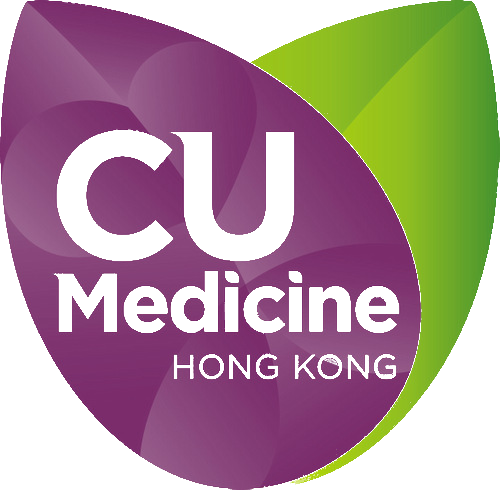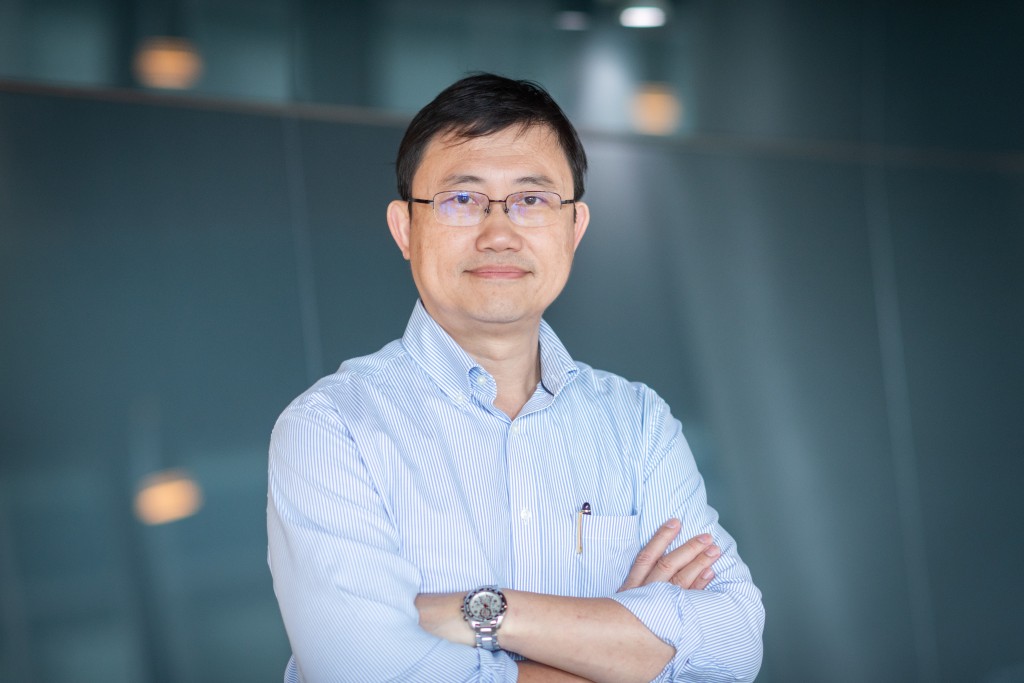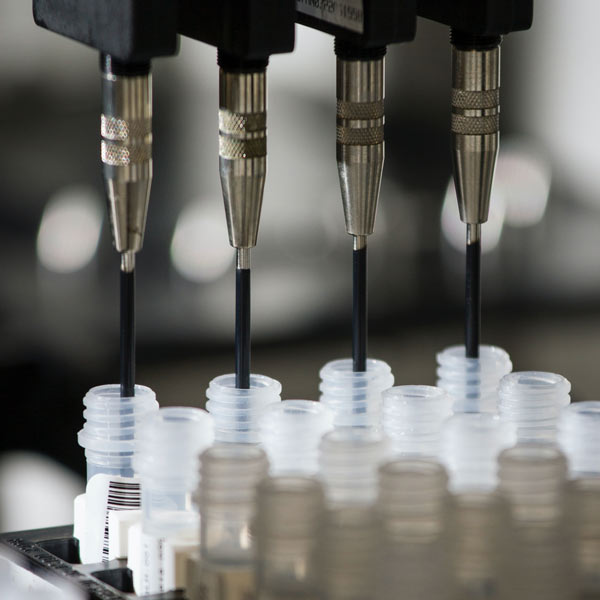“Why start a company? To research. To make an impact. Not to fish in troubled waters. Making a profit is important; rushing it is uncalled for.” With a chuckle, biostatistics expert Prof Benny Zee underlines his rationale as an academic entrepreneur.
Speed is often prized in launching a business – once an idea pops up, entrepreneurs press on to test the waters, fine-tune, fundraise, and scale-up. But to Benny, a scholar first and foremost, technological readiness and empirical evidence are of the essence. He instead gives priority to developing a convincing product; soft fire makes sweet malt, after all. “Of course, that’s just me.”
Returning from Canada two decades ago, Benny has amassed a considerable list of titles at CUHK – Professor of the Jockey Club School of Public Health and Primary Care, Director of Centre for Clinical Research and Biostatistics, and Chairman of the Joint CUHK – New Territories East Cluster Clinical Research Ethics Committee for the past 14 years. Lately, he has yet another major engagement.
This April, he was appointed Director of the Office of Research and Knowledge Transfer Services (ORKTS). From a user to its chief, Benny leads a team of 70 to spur research commercialisation at CUHK. Over the past few months, we often spot him at our forlorn campus – sleeves rolled up, backpack slung over one shoulder – commuting between his several workplaces.
Before delving into his anecdotes about teaching, research and entrepreneurship, let’s get to know Benny as a student.
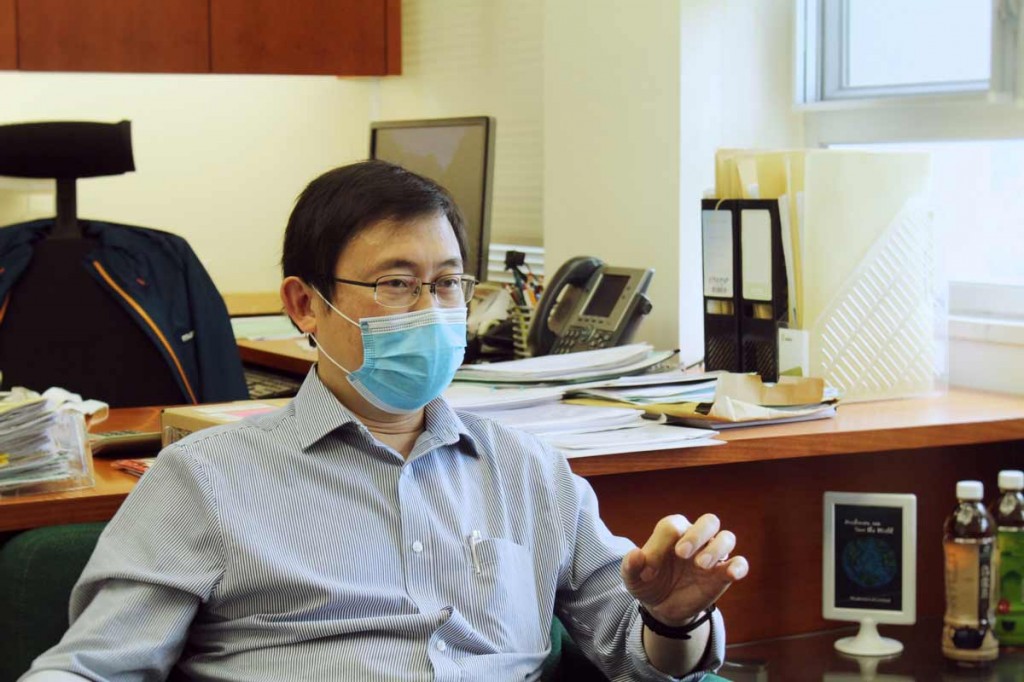
On top of his career, Prof Benny Zee gladly shares his approach to life. “Sports and music matter a great deal to me.” (Photo: SoCUBE)
A merrily eventful childhood
Truth be told, the spelling of his surname has been a curious topic to us. Contrary to the usual “Tsui” (徐), “Zee” prompts associations with Chinese Singaporeans or Malaysians. It turns out he’s born and bred in Hong Kong, an elite “DBS” (Diocesan Boys’ School) boy even.
“My dad is Shanghainese,” he explains that when his father migrated to Hong Kong, he read his surname in the Shanghai dialect, which sounded like “shi” (a voiced sound) to the immigration officers. “Now you know, a lot of Zees in Hong Kong are Shanghainese.”
After finishing his secondary studies in Hong Kong, he pursued actuarial science and statistics in Canada. Asked if there’s a particular reason, “not much studying necessary to ace maths. The maths concepts needed for my first year in Canada? Already done those in Form 3!” He then reveals another reason for his choice – a happy childhood.
“My DBS days were packed; I was on the volleyball team, played high jump, competed at music festivals as a choir AND orchestra member (he played the flute and bassoon), was also a scout. I’m blessed with blissful memories growing up, which explains my lack of time for studies!” He laughs.
Learning calculus in as early as Form 3, Benny considers learning maths the most “cost-effective” – little time necessary for a great outcome. “I tried psychology in Year 1, gave my all but didn’t fare particularly well. As for maths, I didn’t even buy the textbook!”
With his inborn talent, he finished his master’s degree in Canada. “Some of my classmates joined the insurance industry (as actuaries), though working out insurance plans doesn’t tickle my fancy. I wasn’t eager to join the workforce either; would rather apply my statistical knowledge in meaningful areas, which struck me then – medicine. That is biostatistics.” He made his way to the USA for a PhD at the University of Pittsburgh, investigating the remarkably rare systemic sclerosis (硬皮症).
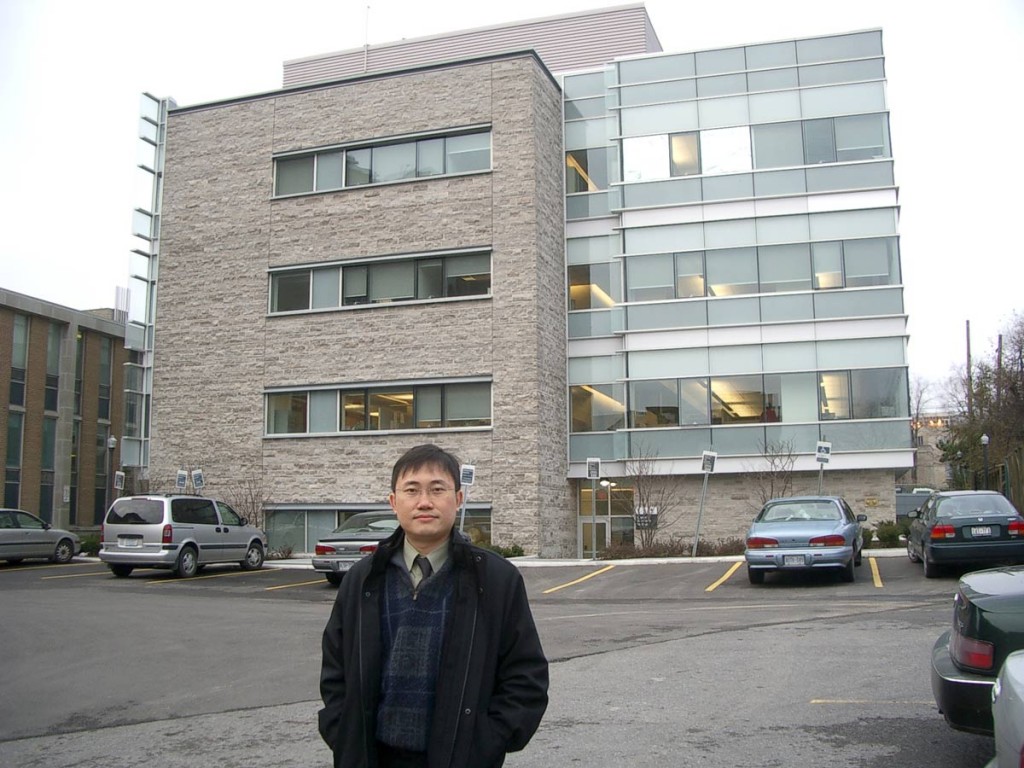
Canadian Cancer Trials Group (formerly the National Cancer Institute of Canada Clinical Trials Group), where Benny served for 13 years. “Fortunate to have developed my early career under the guidance of an excellent mentor, Prof Joseph Pater, who showed me the importance of good research methodologies, characters to work well with people, and high integrity.” (Photo courtesy of Prof Benny Zee)
Crossing the line in the States
When it comes to memories of Pittsburgh, the most striking is not found in his research at the Department of Rheumatology, but studies on tendon and cartilage damage done by his orthopaedic colleagues across the corridor.
“They were calculating the number of times a person’s tendon moves throughout his life until causing damage to the cartilage, thus joint pain. They had a machine spinning a cadaver non-stop to arrive at their data.” Happened this research team needed an expert in statistics, so Benny was invited to “moonlight”. “First time visiting their lab, there lay the lower portion of a body, all the while my colleagues kept encouraging me to eat and drink with hospitality.” He can’t help laughing at his first encounter with a “silent teacher”.
This fortuitous engagement introduced Benny to the realm of bioengineering. Realising his interest for mechanical data, he threw himself into this “side business”. His salary even exceeded his PhD stipend, drawing his supervisor’s attention. His response then was pretty bold, “well, ask the University not to pay me as much.”
He graduated in 1987, about time to get a job. Fed up with daily accounts of wars across the territory, he had no plans to stay. A radical alternative crossed his mind. “I almost set off to a small Canadian town to teach maths at a university. My supervisor reacted strongly.”
And naturally so – given the research unit he belonged to (the National Surgical Adjuvant Breast and Bowel Project; NSABP) was a clinical trials group of considerable scale in the USA, it pained his supervisor to see his talents go down the drain. Benny eventually joined the National Cancer Institute of Canada Clinical Trials Group as Senior Biostatistician, taking charge of designing clinical experiments.
Transferring his experience back home
Soon enough, he realised the job came with a “price”, “administrative work took up almost 80% of my time – designing trials, fixing computer issues, handling human resources, negotiating with industry collaborators, and the maths part got squeezed. Took a while to recover from the ‘shock’; I was gonna be a maths professor in a small town!”
Regardless of the pivotal change, he stresses later in our interview that administration plays a fundamental role in an institution to ensure its smooth operations and credibility. He doesn’t seem to mind these tasks too, seeing he spent 13 years on this first job. He takes the greatest pride in receiving funding from pharmaceutical companies while matching up to the targets of both the research institute and companies, finding better medicine for patients.
In early 2000, aware of his ageing parents back in Hong Kong, while feeling it was time for a mid-life change, Benny chanced upon a vacancy from CUHK’s Department of Clinical Oncology, joining the University the next year as Professor. He devoted the first three years to establish the Comprehensive Cancer Trials Unit.
Aside from conceiving clinical trials to verify the effectiveness of drugs and therapies, he assisted in forming an ethics committee. When it comes to matters of life and death, an advanced regulatory mechanism ought to be in place to safeguard research standards without violations of ethical conduct. “This is how we can connect with the international community and be recognised globally. There was considerable wrestling, though, for something that was not in the system in the first place.”
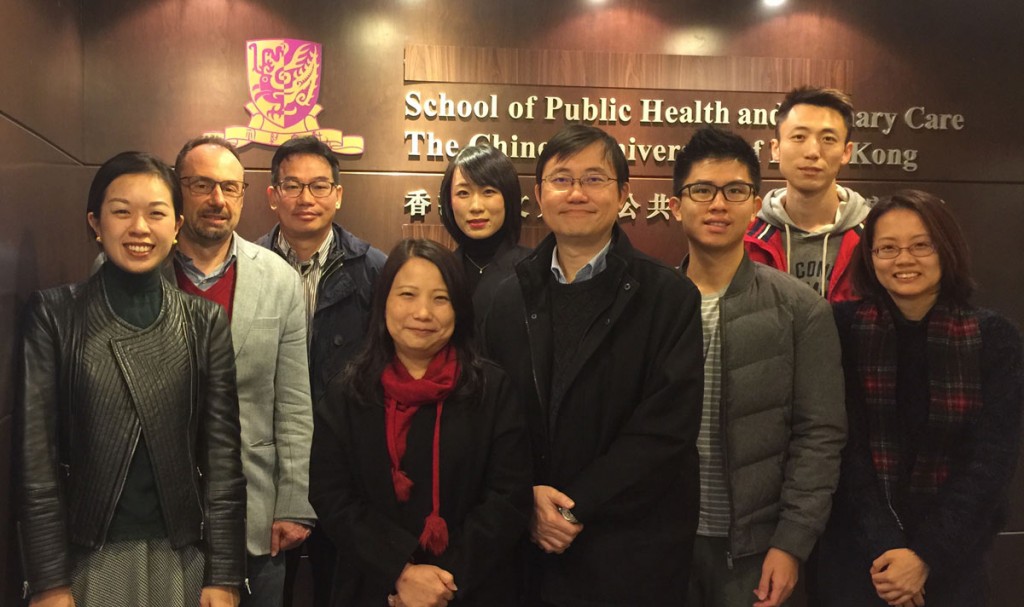
Benny_4 The Centre for Clinical Research and Biostatistics family of experts at CUHK, also the origin of the later set-up Health View Bioanalytic and its technology. (Photo courtesy of Prof Benny Zee)
Joining the ranks of entrepreneurs
As he engaged in his routine work and innovated within his Faculty, Benny noticed the rise of an entrepreneurial culture across campus since 2014, marked by the launch of the Technology Start-up Support Scheme for Universities (TSSSU; funded by the Innovation and Technology Commission). The Scheme encourages faculty members and students alike to start ventures and commercialise their research. “Universities haven’t been supportive of professors running businesses in the past.”
Coincidentally, Benny and his team developed the “automatic retinal imaging analysis” (ARIA) tool those few years. By taking a single picture of the rear of the eye, their system analyses the blood vessels and estimates the risks of stroke and cardiovascular diseases. ARIA is already patented in the USA, mainland and Taiwan.
Riding on the University’s transformation, he saw the opportune timing to put his tool into practice, setting up Health View Bioanalytic through TSSSU in 2015. “So I’m a product of TSSSU!”
His team not only works with NGOs to offer assessments to the community but also furthers their research with their growing database. They soon notice that the photo also reveals risks of cerebral white matter hyperintensities (腦白質病變) for early detection of dementia, and can even screen for drug addiction and depression. “Informed of their own risk estimates, the public may adjust their lifestyles in time, tuning their eating and exercise habits, which can significantly reduce the chances of disease. We are now looking for more scientific backup and roll out (our service) in one go.”
Five years have since passed. He deems his business not robust yet, though highlighting his casual attitude towards making a profit, “why would you need to earn that much?” All along, the purpose of his business is for research and bringing substantial impact to society. Simple and straightforward enough, challenging in execution, nonetheless.
“Initially, I thought a well-designed assessment tool automatically guarantees users – not the case at all. Our society lacks a culture of disease prevention.” While most visit the doc when sick, drastically fewer would willingly pay for a screening service. This is why his team also organises awareness-raising events through CUHK’s Knowledge Transfer Project Fund, for instance, lending the voice of the youth to promote brain health messages to the elderly.
The start-up journey is never a smooth one. Having founded two companies (the other being Beth Bioinformatics), Benny agrees that entrepreneurs need a sturdy mind. “There’re loads of varying voices or noises out there; some throws a wet blanket on you, some deceives, some coaxes, some tells you off, some oppresses.” He makes a list of the many negativities to expect. “You need a firm belief, but one that’s grounded, not blind.”
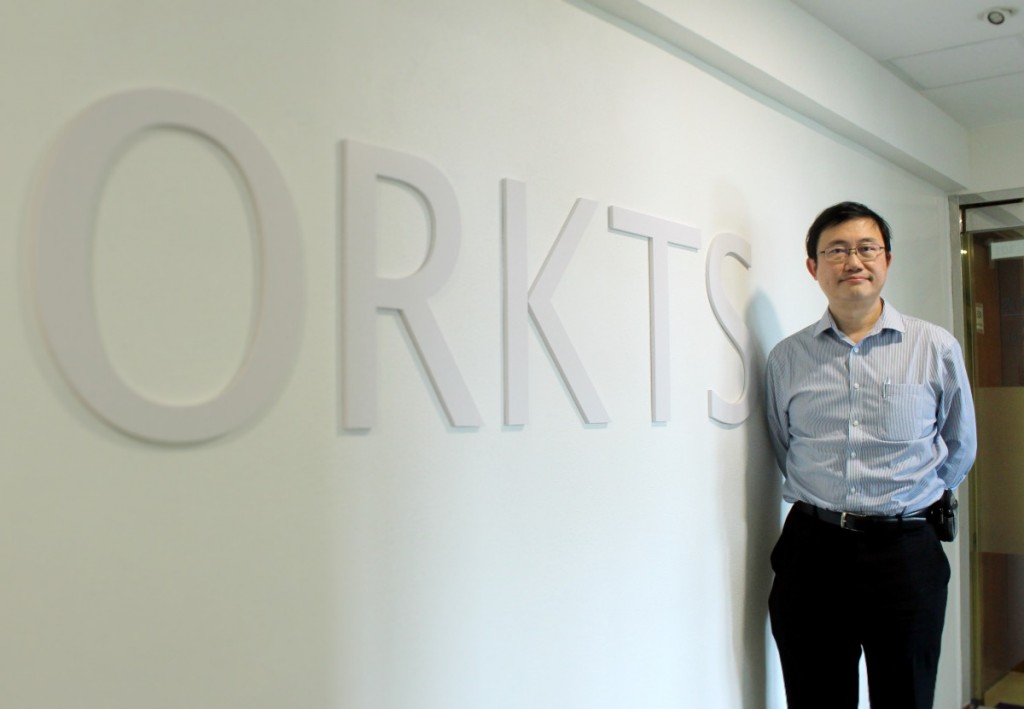
Benny took office as ORKTS Director in April; one of his latest challenges is probably to manage a huge team amid the epidemic. We interviewed him on a blistering August day; whereas most colleagues worked from home, he was back at Pi Ch’iu Building as usual. (Photo: SoCUBE)
Down a new runway
Almost 20 years at the University, he embraced another challenge this April as Director of ORKTS. His ample experience in administration and statistics surely adds value to the strategic transfer of CUHK’s fruitful research to the community, especially marshalling expertise across disciplines to tackle pressing global issues.
Every university has a department like ORKTS, charged with facilitating research grant applications, research contracts with the industry, patent applications and so on. Benny used to be a frequent ORKTS user and knows its responsibilities inside out. Still, to the public and even students, few know such a department exists at Pi Ch’iu Building along the University Mall.
“ORKTS used to focus on one facet (aforementioned); it now has another mission – knowledge transfer (KT). Universities started waking up to its importance around this decade or so.” KT is a scholarly buzzword, though the concept can be illustrated by starting a company based on research outputs, as Benny did. “To perfect our KT and research commercialisation, many of these activities would take place at our newly established InnoPort.”
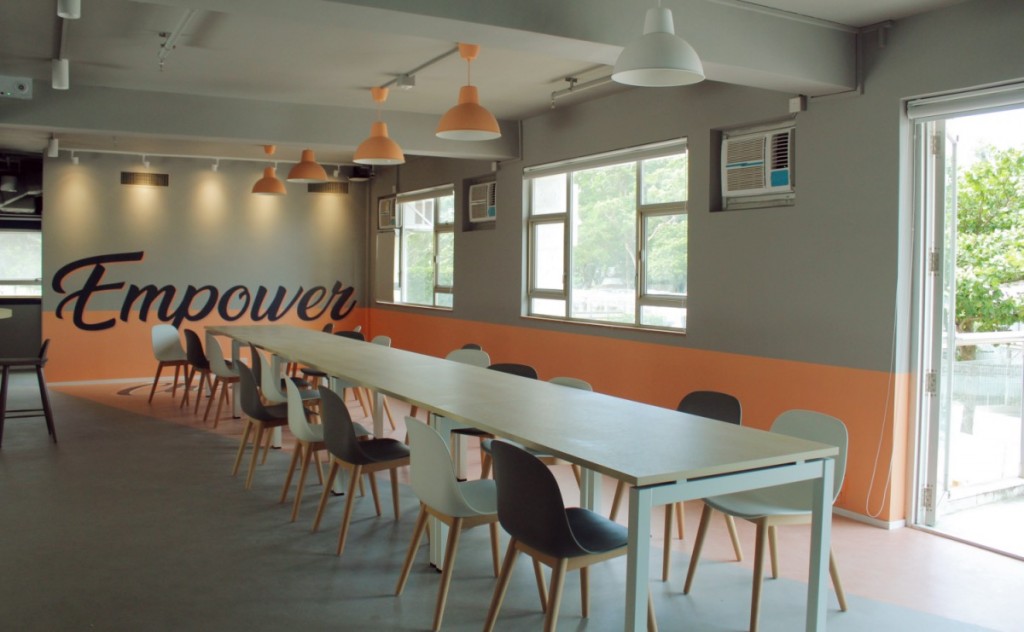
The epidemic also set back InnoPort’s renovation, most of which has been concluded to date. Its strategic location likely makes it a focal point for CUHK entrepreneurship. (Photo: SoCUBE)
Three ways to a culture of innovation
Conveniently situated next to the University MTR Station, InnoPort takes up five floors of the Inter-University Hall, offering co-working spaces, an exhibition hall, meeting rooms among other amenities. The refurbishment has mostly wrapped up in mid-2020. “What happens inside is more important. Stationed here, we have our Venture Acceleration Team, which assists professors and students in commercialisation; Social Innovation Team enables them to initiate social enterprises or projects in response to the society’s needs.”
Besides these two key pillars, Benny has an even higher target, “to set up a system that consolidates research strengths and talents from our broad range of disciplines, discarding departmentalism and joining hands to answer global needs. Say environmental pollution, how could engineers, public health experts and scientists address this issue from their own perspectives? This would be the primary job for our Knowledge Liaison Team.” Finally, the InnoPort Team focuses on cultivating the ecosystem at this hotspot, while strengthening collaborations among teams, internal and external parties.
InnoPort is scheduled to “open for business” after the epidemic as the new entrepreneurial landmark for faculty members, students and alumni, spreading CUHK’s dare-to-innovate spirit. Benny promises that he and his team will diligently conduct the administrative work, making sure that these “big plans” are effectively in order.
【Scholarly keyword】Multi-centre clinical trials
“Clinical trial” is no doubt a keyword in Benny’s career, not to mention a recent hot topic. Just last month, Russia was the first to announce mass production for a Covid vaccine, inviting questions from the international community. One of the reasons was that the vaccine has yet been tested by the necessary phase 3 trials.
Besides categorisation by stage, clinical trials can be “single-centre” or “multi-centre”, the latter being Benny’s strength. This means the trials are “scattered” and done at different locations – complexity is higher, but a greater diversity (e.g. race, living environment) of participants is possible, avoiding homogeneous sampling.

